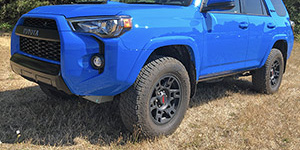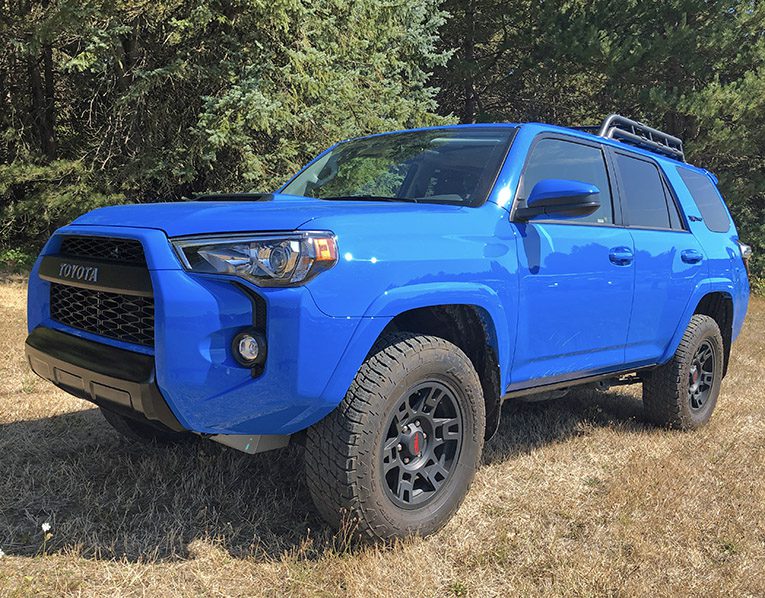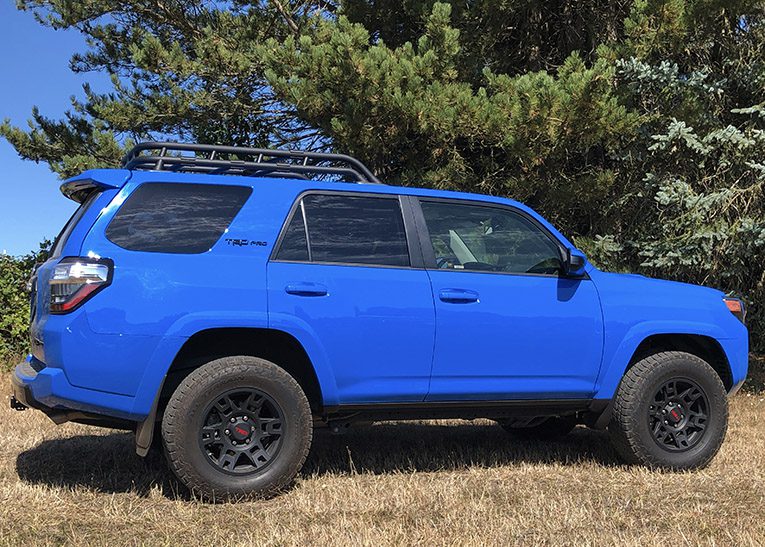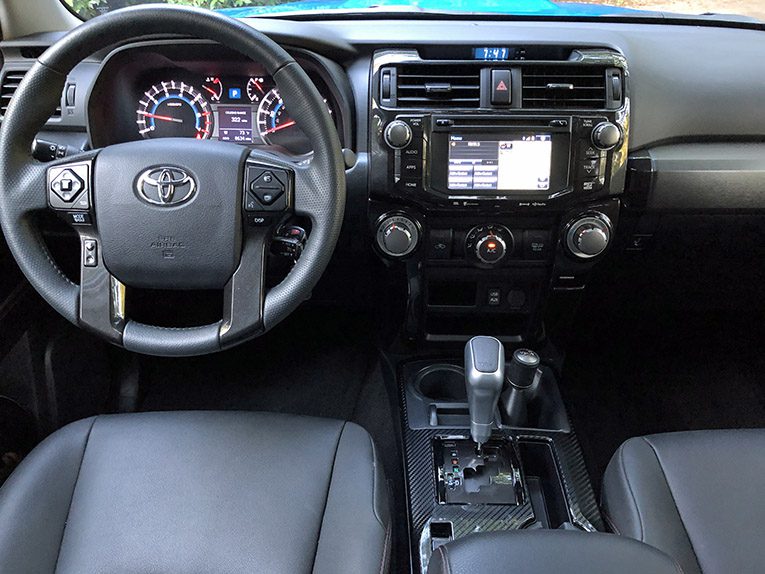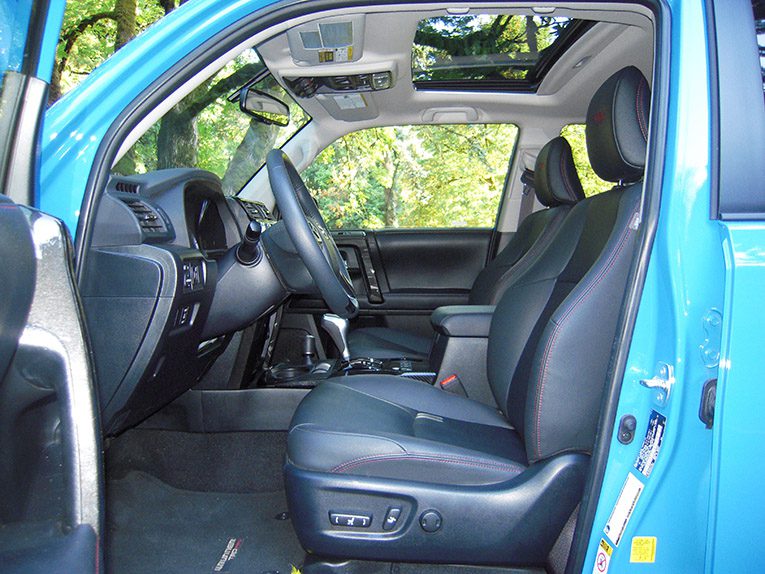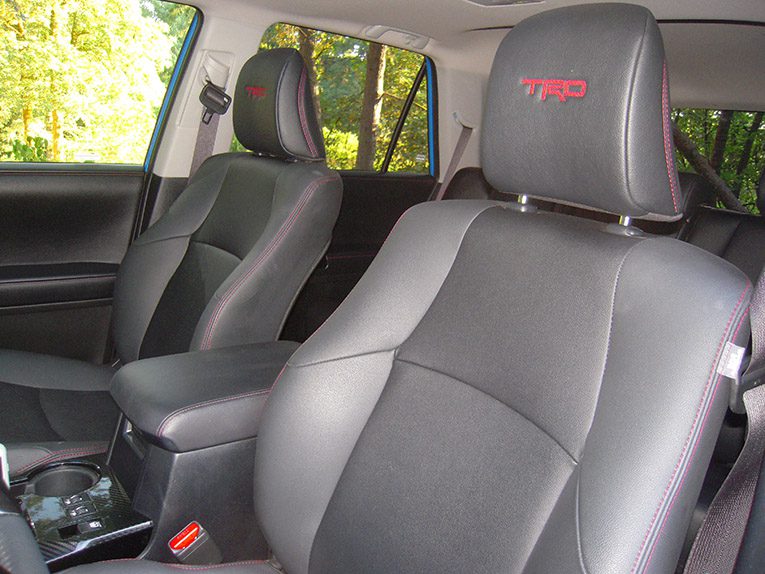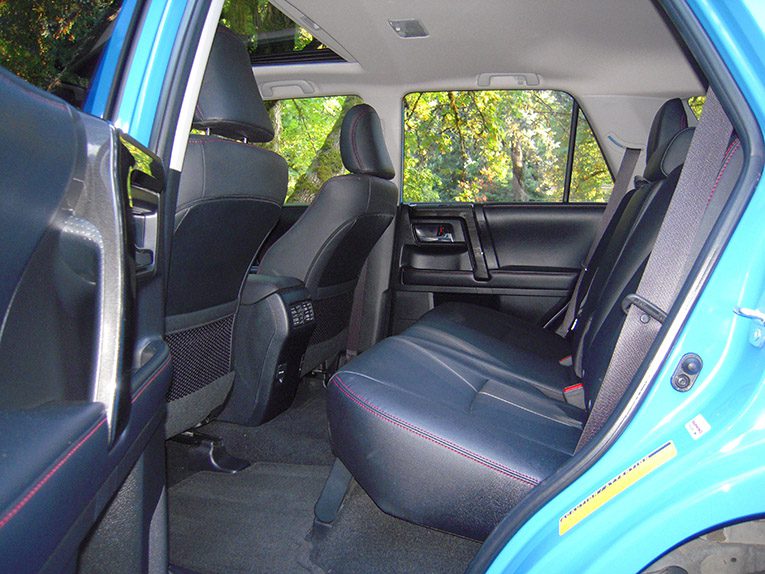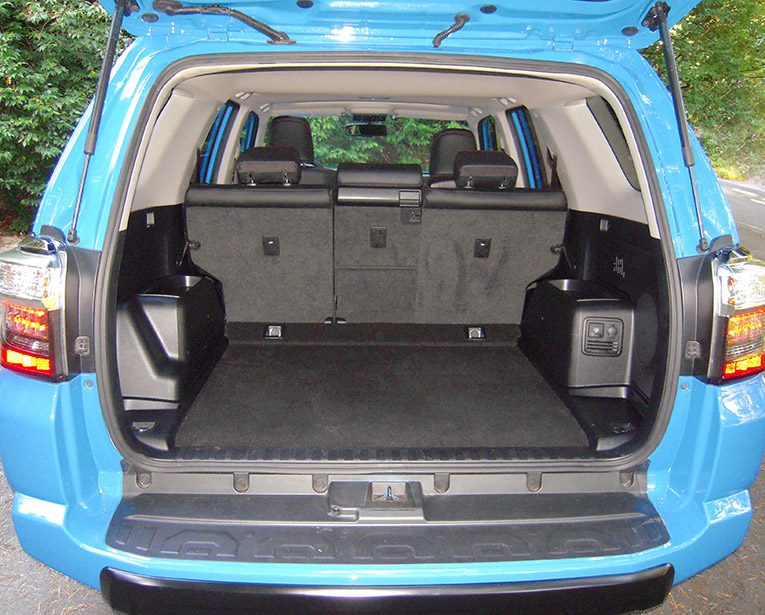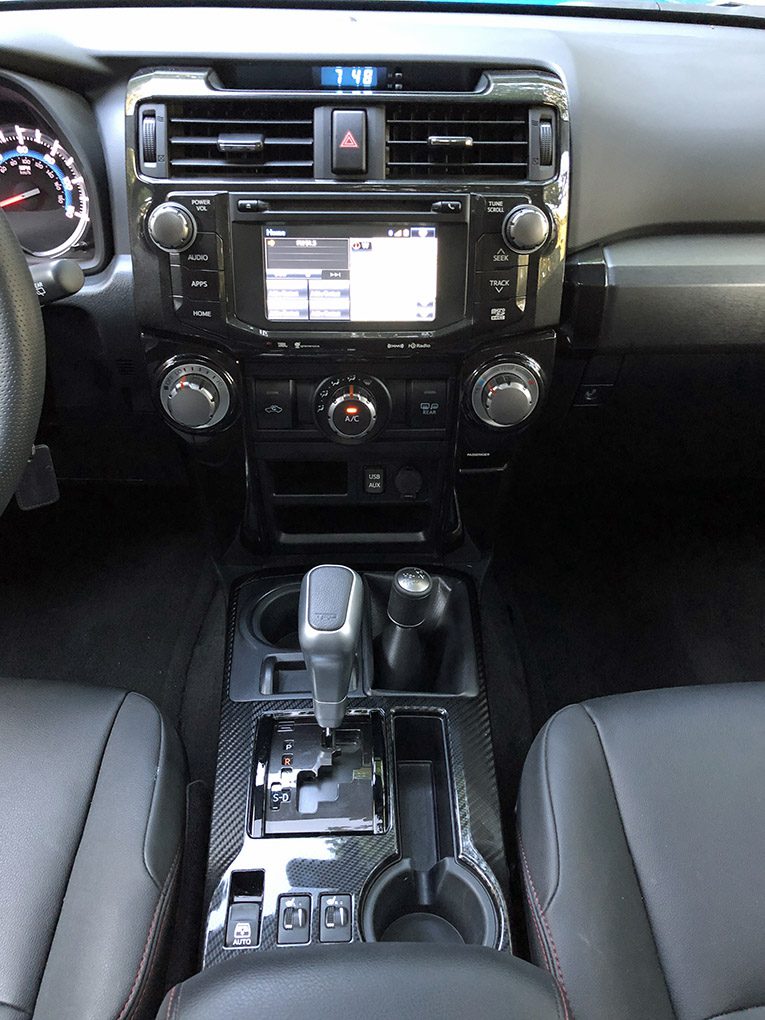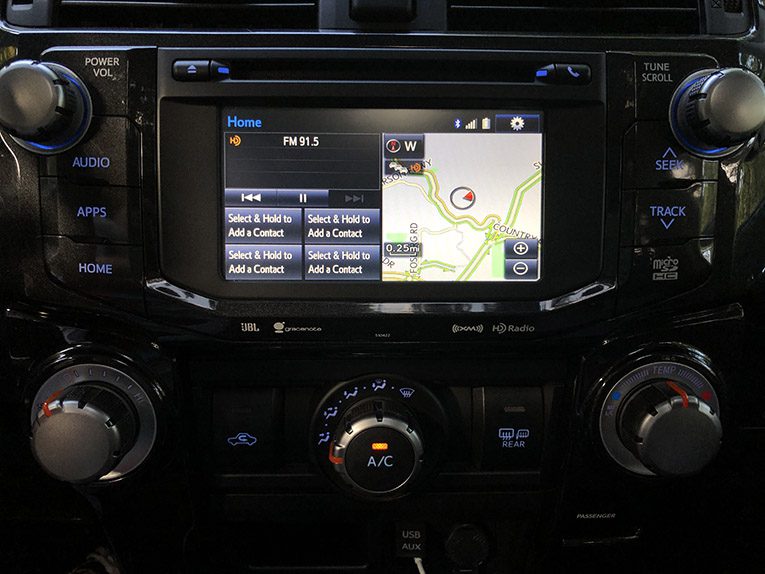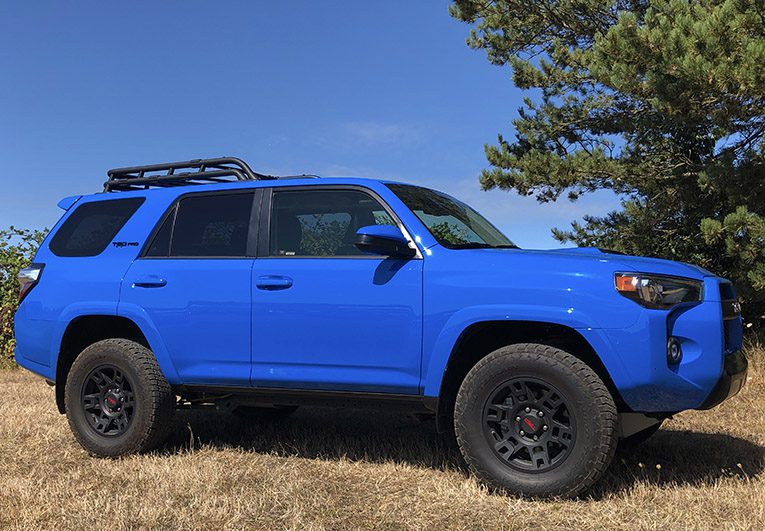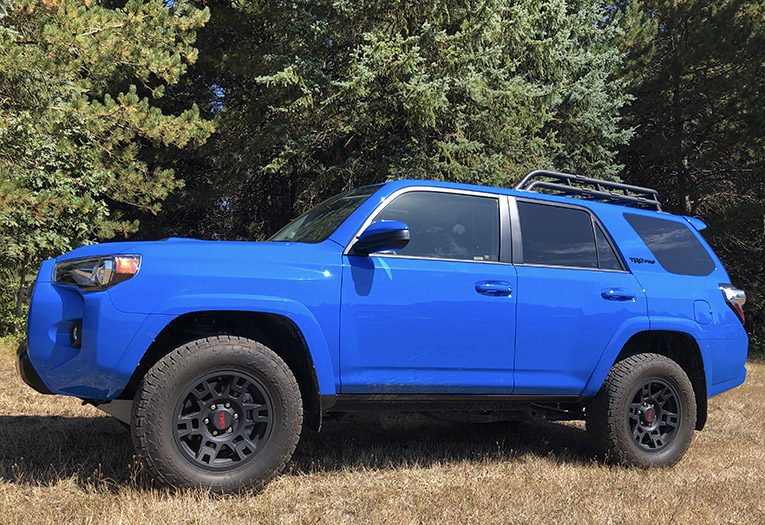If you’re looking for a beast for off-roading, the Toyota 4Runner can help you conquer the great outdoors. If you’re looking for an SUV that performs well as a daily driver, the 4Runner isn’t the best choice.
The 2019 Toyota 4Runner is an old-school SUV with its body-on-frame design and serious off-roading capability. So this is a rig that can handle exploring off the beaten path. If you’re more interested in an SUV that can be a good daily driver and take the family on a summer camping trip, then the 4Runner is probably not civilized enough.
The Toyota 4runner was first produced in 1984 and the fifth generation was introduced in 2009. So it’s getting a bit long in the tooth without much of the technology that Toyota has added to other vehicles. For 2019, the Limited trim gets an optional Nightshade appearance package that includes 20-inch black wheels, black bumper and grille accents, and some black accents in the interior.
The 4Runner is available in six trims: SR5, SR5 Premium, TRD Off-Road, TRD Off-Road Premium, TRD Pro, and Limited. Starting prices range from $35,310 to $47,400 which is above average for the class. The SR5, SR5 Premium and Limited trims come standard with rear-wheel-drive, with available four-wheel-drive. The TRD models come standard with 4WD. The 4Runner’s standard configuration seats five passengers. An optional third row provides room for up to seven passengers.
There’s only one available engine: a 4.0-liter V6 that makes 270 horsepower and 278 pound-feet of torque, paired with a five-speed automatic. There’s more than enough power for everyday driving situations with plenty of oomph for accelerating from a stop, merging and passing at freeway speeds and towing your toys. The five-speed shifts smoothly and always seems to find the right gear. The high seating position makes for a good view of the road.
When properly equipped, the 4Runner can tow a maximum of 5,000 pounds.
While most large pick-ups handle like smaller vehicles, the 4runner does the opposite: it handles like a big ol’ truck. The ride is firm and can get pretty bouncy on rougher roads, and there’s a fair amount of body lean when cornering.
The 4Runner is a rock star when off-roading. All have 9.6 inches of ground clearance. You can choose from 2WD, part-time 4WD with a 2-speed transfer case, or, in the Limited, full-time multi-mode 4WD with a 2-speed transfer case and locking center differential. The TRD Off-road adds more off-road prowess with crawl control, a locking rear differential, and multi-terrain select mode. The TRD Pro adds TRD-tuned springs, 2.5-inch Fox shocks, TRD skid plate and a roof rack.
The generous ground clearance can make getting in and out challenging. There are no running boards so you need to take a giant step up.
Fuel efficiency is below average for the class. EPA ratings for my tester are 17 mpg city and 20 mpg highway with a combined rating of 18 mpg. I got 18 mpg during my week with a mix of city and highway driving.
The cavernous interior provides lots of room for passengers and cargo. Seats are comfortable and supportive. The second row reclines up to 16 degrees. But since the 4Runner hasn’t had a makeover in a decade, the interior looks dated and doesn’t have as many features as most rivals.
Standard features include a rearview camera, cloth upholstery, eight-way power-adjustable driver’s seat, leather-trimmed tilt-and-telescoping steering wheel, 120-volt power outlet, 6.1-inch touch-screen infotainment system, eight-speaker audio system, HD Radio, satellite radio, Bluetooth and a USB port.
Options include proximity key entry, push-button start, moonroof, dual-zone automatic climate control, leatherette seating, leather upholstery, four-way power-adjustable passenger seat, heated front seats, ventilated front seats, the Entune app suite, a 15-speaker premium JBL audio system, navigation, and front and rear parking sensors.
The infotainment system responds quickly to commands but its tiny 6.1-inch screen looks dated, and it requires a fair amount of precision to touch the correct icons since they’re so small. And there’s no Android Auto or Apple CarPlay. On the plus side, physical buttons that are easy to see and reach control climate and audio.
The 4Runner also has no safety tech such as lane keep assist, forward collision warning or rear cross-traffic alert. Many of these are standard on other Toyota vehicles and other rivals.
The 4Runner has lots of cargo space with 47.2 cubic feet behind the second row and 89.7 cubes with the second row folded. The square shape means you can load it to the gills with your gear. Models with the third row only have 9 cubes with all three rows in place. An available pull-out cargo deck can carry up to 440 pounds to make it easier to load and unload heavy items, plus you can use it for tailgating.
The good:
Superb off-roading capability
Lots of trims, configurations and prices
Spacious interior
Lots of cargo space
The not-so-good:
Rough road manners
Handles like a big truck
Below average fuel efficiency
Interior not as nice as rivals
Infotainment system is dated
Relatively high starting price
Limited tech and safety features
Pricing info:
My tester starts at $46,415. Delivery fee is $1,045 bringing the grand total to $47,460.
Bottom line:
Rough and rugged, the 4Runner boasts great off-roading capability and lots of cargo space. But its unrefined performance, relatively steep sticker price and poor fuel efficiency make it less appealing as a daily driver.


